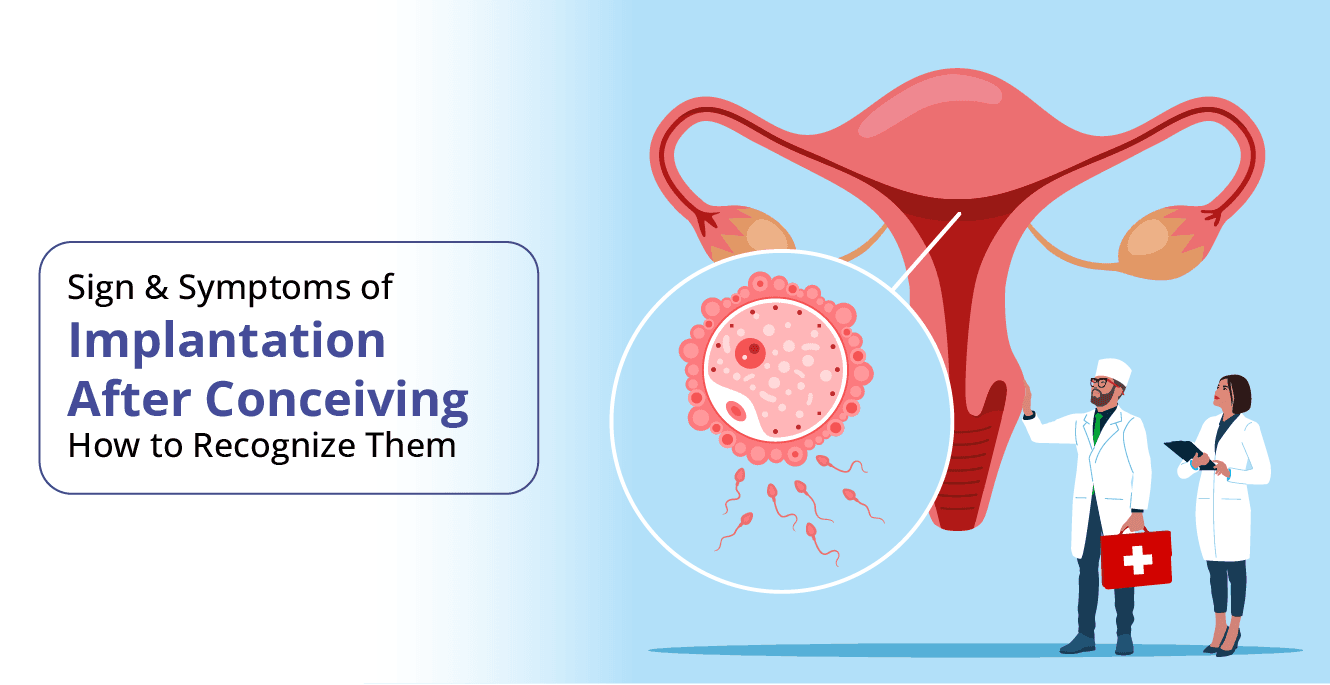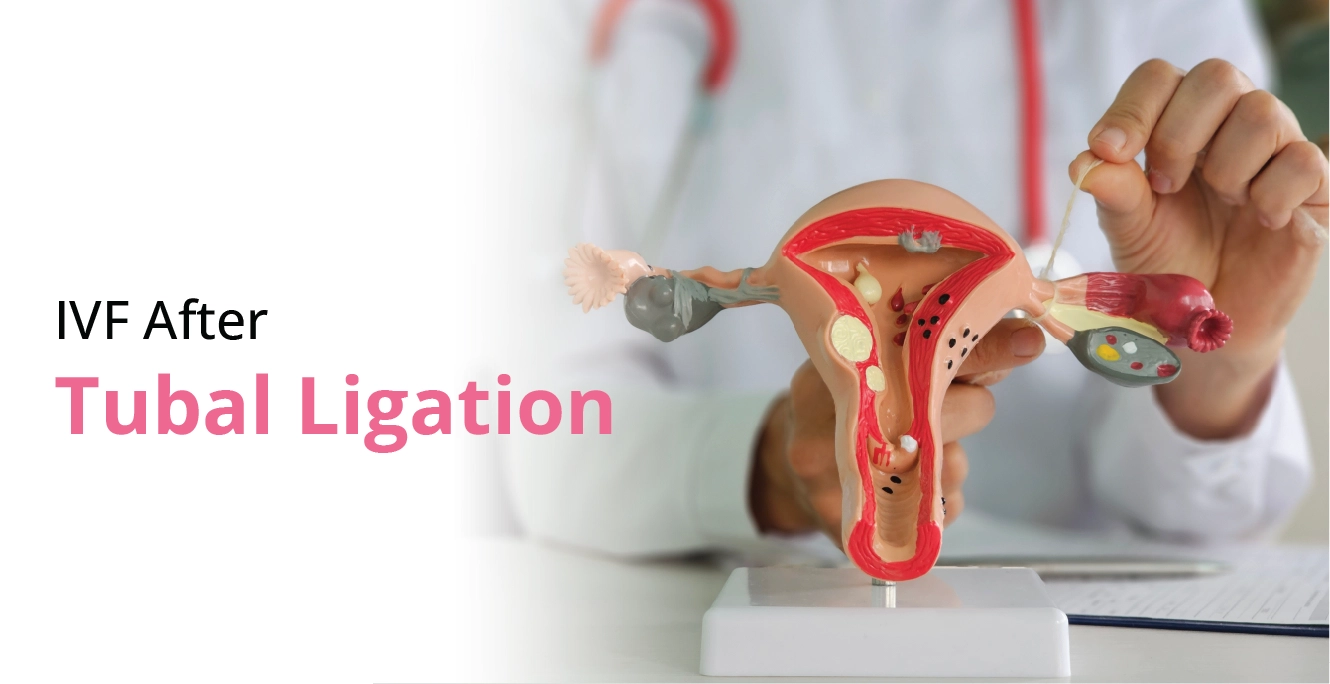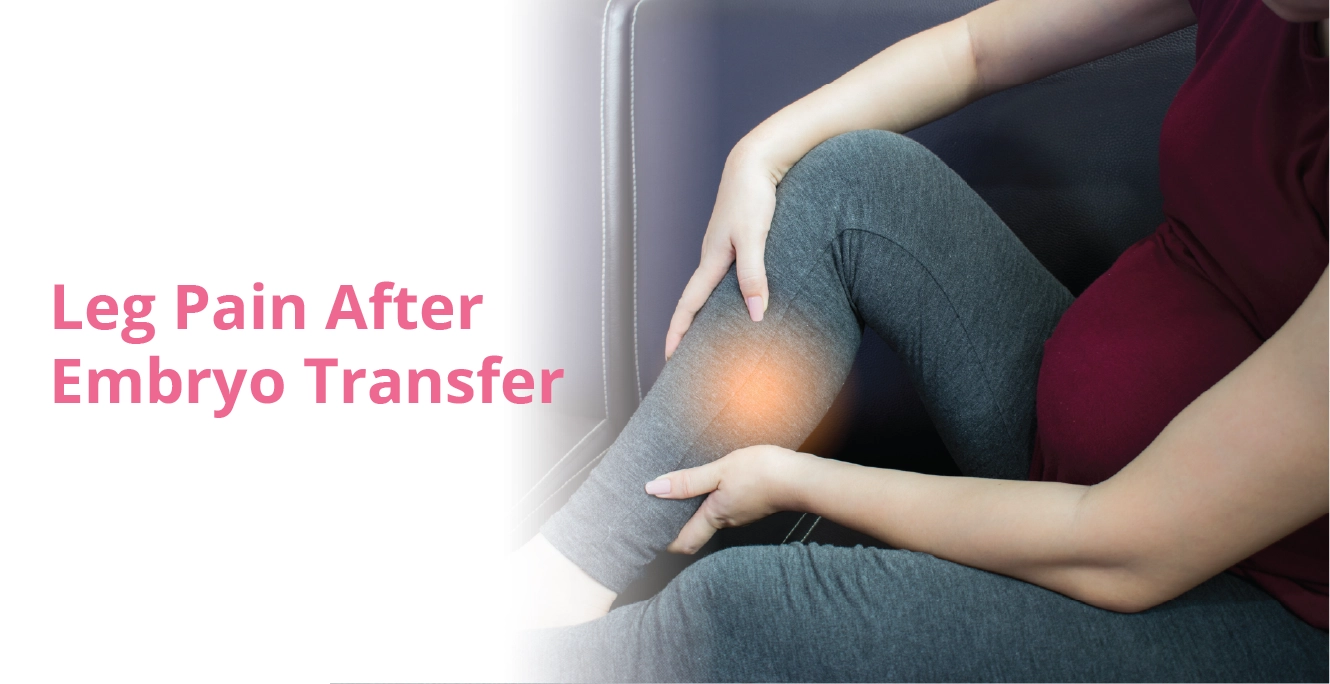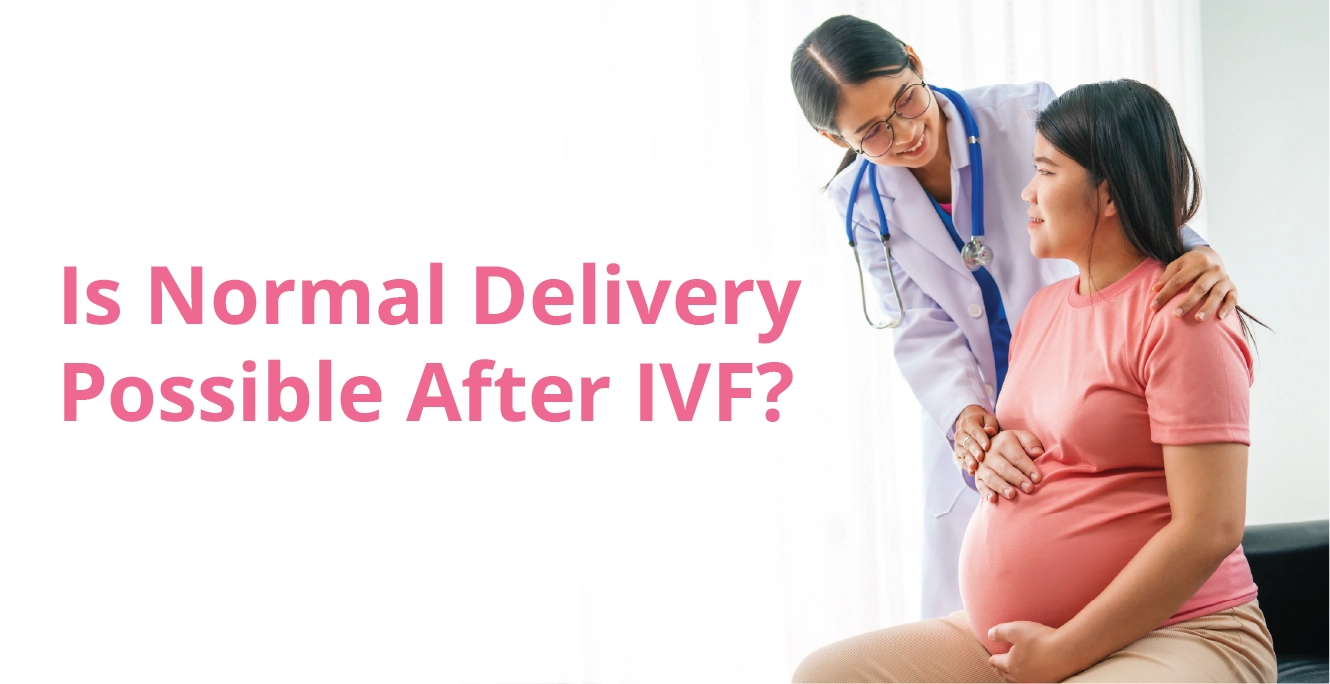
Embryo Implantation: Signs, Symptoms, and What to Expect

Table of Contents
- Embryo Implantation in IVF Treatment: Step-by-Step Guide
- When Does Implantation Happen in IVF?
- How Does Implantation Work?
- Signs of Successful Embryo Implantation
- Signs of a Failed Embryo Implantation
- What Happens During Embryo Implantation?
- When to Take a Pregnancy Test?
- How to Differentiate Implantation Symptoms from Premenstrual Symptoms in IVF
- Conclusion
- Frequently Asked Questions (FAQs)
As per the reports of the WHO, around 17.5% of the adult population worldwide, which is roughly 1 out of 6 people, are affected by infertility. Infertility is defined as the failure of conception after 12 months of trying with unprotected sexual intercourse. In such cases, experts suggest assisted reproductive techniques (ART) that give couples hope to achieve pregnancy. One of the popular ART methods is IVF (In-vitro fertilisation). Embryo transfer and implantation are crucial steps in making this process a success.
This article will give you an overview of implantation signs and symptoms after embryo transfer so that you can better understand what to expect during this critical stage of your IVF journey and recognise potential signs of successful implantation.
Embryo Implantation in IVF Treatment: Step-by-Step Guide
- The female partner would receive certain hormonal medications to promote ovulation during an ideal IVF procedure.
- After ovulation has been triggered, mature and healthy eggs are retrieved. A semen sample from the male partner is also collected.
- The collected semen sample is then washed and concentrated for the further fertilisation process.
- In a highly supervised setting at an IVF lab, the mature eggs and sperm are then combined and allowed to fertilise in a Petri dish. After fertilisation, five to six days are given for the developing embryo to mature.
- The final stage of an IVF cycle is embryo transfer. Your fertility specialist locates and picks a viable embryo and implants it in the uterine lining for conception.
- Fresh embryo transfers and frozen embryo transfers are two different types. A frozen embryo transfer occurs when the embryo has already been developed and stored for future pregnancies.
When Does Implantation Happen in IVF?
Implantation in IVF occurs after embryo transfer, depending on the embryo’s stage at the time of transfer:
- Day 3 embryos: Implantation typically happens 2-4 days post-transfer.
- Day 5 (blastocyst) embryos: Implantation usually occurs within 1-3 days post-transfer.
This step is crucial for a successful pregnancy, as the embryo must attach to the uterine lining and begin receiving nourishment from the mother’s blood supply. A beta-hCG test is recommended 10-14 days post-transfer to confirm implantation
How Does Implantation Work?
Implantation is the process where the fertilised egg, now called a blastocyst, embeds into the uterine lining. This allows the embryo to receive nourishment and start developing. During implantation, the body might experience mild changes or discomfort, which can be mistaken for premenstrual symptoms or other conditions.
Signs of Successful Embryo Implantation
Some positive symptoms that can indicate successful implantation are:
- Mood Swings: Hormonal fluctuations are normal during this process and may lead to irritability or mood changes.
- Discomfort and pain in the pelvis: You will feel mild to moderate discomfort and cramps in your lower back, pelvis, and stomach. They are referred to as embryo implantation cramps. The intensity of pain and discomfort is similar to menstrual cramps.
- Soreness in the Breasts: Breasts that are sore and swollen. You can anticipate certain changes in the areola and nipple regions. Most women experience some breast discomfort and oedema in the breasts.
- Fatigue: After a week of embryo implantation, it is normal to feel worn out and sleepy. However, the hormonal changes brought on by an embryo transfer may cause you to feel more exhausted than usual.
- Morning sickness: During the later phases of an embryo transfer, you may feel a little nauseous. These symptoms, also referred to as morning sickness, are typically present in the first few weeks of pregnancy.
- Food intolerances: Following a successful embryo transfer, it is common to develop intolerances to particular foods and odours. Though it is normal and may vary from individual to individual.
- Changes in vaginal discharge: Due to changes in hormone levels, a successful embryo transfer can result in an increased vaginal discharge. The extra vaginal discharge keeps the endometrium in the best possible condition for further embryo development.
- Spotting or light bleeding: Light bleeding or spotting, known as implantation bleeding, can occur in some women. It is lighter than a typical period and often happens around the time the embryo attaches.
- Missed menstruation: Missing your period after an embryo transfer indicates that the pregnancy has begun and is an indication of successful implantation.
Some women may not exhibit any symptoms following an embryo transfer, but this does not always mean that their embryo transfer was unsuccessful.
Signs of a Failed Embryo Implantation
While implantation failure may not always cause noticeable symptoms, some women may experience:
- Menstrual bleeding occurs as expected or slightly later
- Heavier than usual menstrual flow
- Severe menstrual cramps
- Bloating or discomfort
- No early pregnancy symptoms (such as breast tenderness or nausea)
Reasons for a Failed Embryo Transfer
If an embryo fails to implant into the uterine lining, pregnancy does not occur. Implantation failure can happen due to various reasons, such as:
- Chromosomal or genetic abnormalities
- Uterine fibroids or structural abnormalities
- Scar tissue or adhesions in the uterus
- Uterine infections or inflammation
- Hormonal imbalances, such as an early rise in progesterone
- A non-receptive endometrial lining
- Advanced maternal age
- Obesity
Determining the exact cause of implantation failure can be challenging. If an embryo transfer is unsuccessful, your fertility specialist may recommend further testing and adjustments to your treatment plan to improve implantation chances in future cycles. In addition to medical interventions, adopting a healthy lifestyle can also support fertility and overall reproductive health.
What Happens During Embryo Implantation?
The process of embryo implantation is divided into three main phases, which explain what happens after embryo transfer:
- The Apposition Phase
The blastocyst (early embryo) loosely aligns with the uterine lining (endometrium) in this phase.
- Attachment Phase
This is also known as the adhesion phase. Here, the blastocyst attaches more firmly to the endometrium.
- Penetration or Invasion Phase
- The apposition phase is defined as the unstable adhesion phase in which the blastocyst embryo sticks to the surface of the uterine lining.
- In the attachment phases, stable adhesion occurs, and the embryo and uterine lining signal back and forth.
- The penetration phase or invasion phase involves the invasion of the embryonic cells through the surface of the uterine lining into the stroma of the uterine lining, leading to the formation of a vascular connection.
- The entire process of implantation is completed in 7-12 days after conception. The embryo then begins to divide and develops into a zygote. Post this, the zygote releases a hormone called the HCG that is used to determine pregnancy.
When to Take a Pregnancy Test?
While it is tempting to take a pregnancy test right after implantation, it is best to wait about 10 to 14 days. A test too early may not detect the hormone human chorionic gonadotropin (hCG), which is produced after implantation. For the most accurate results, wait until after your expected period.
Implantation Timelines (For IVF)
Here is a general timeline of implantation and what symptoms might occur:
- Day 0 (Embryo Transfer) – The embryo is placed in the uterus.
- Day 1-3 – The embryo begins the process of attaching to the uterine lining.
- Day 4-6 – Implantation occurs, and some women may notice mild cramping or spotting.
- Day 7-10 – Rising progesterone levels may cause symptoms like fatigue, breast tenderness, or bloating.
- Day 11-14 – A blood test (beta hCG) can confirm pregnancy.
How to Differentiate Implantation Symptoms from Premenstrual Symptoms in IVF
Since implantation and premenstrual symptoms can feel similar, it is important to understand their key differences:
- Timing
– Implantation symptoms occur 4-6 days after embryo transfer.
– Premenstrual symptoms usually start a week before the expected period. - Bleeding
– Implantation bleeding is light spotting (pink or brown) and lasts a day or two.
– Menstrual bleeding starts light but becomes heavier over several days. - Cramping
– Implantation cramps are mild, intermittent, and short-lived.
– Menstrual cramps are usually stronger and last longer until the bleeding stops. - Other Symptoms
– Implantation may also cause mild bloating, breast tenderness, and fatigue.
– Premenstrual symptoms often include mood swings, headaches, and stronger abdominal discomfort.
While these signs can offer clues, the most reliable confirmation of implantation is a beta-hCG test, which is performed 10-14 days after embryo transfer
Conclusion
Implantation is a crucial stage in your IVF journey, and knowing what to expect can bring reassurance during this waiting period. Whether you are watching for early signs or wondering when to take a pregnancy test, understanding the process can help you feel more in control. Every journey is unique, so try to be patient with your journey. If you have any concerns or need clarity, your doctor is always the best source of guidance. Stay hopeful and feel free to talk to our experienced IVF experts if you need any clarity or have any concerns.
Frequently Asked Questions (FAQs)
How can I figure out that the embryo was implanted successfully?
The expert asks the patient to test for pregnancy on the 7th or 12th day after the IVF cycle. Once it shows positive, if you experience spotting in the following week, it is often indicated that the embryo has been implanted successfully.
What should I eat to boost the chances of implantation?
The following foods can promote the thickness of the endometrium lining, which can result in successful embryo implantation:
- Wholegrains
- Beetroot
- Quinoa
- Brown rice
- Whole wheat bread
I am experiencing heavy bleeding after my positive pregnancy test. Is it normal?
Spotting or light bleeding is normal after successful embryo implantation. However, if you see abnormal and excessive bleeding, you should consult your doctor for immediate medical advice and expert advice for effective results.
How long do implantation symptoms last?
The signs and symptoms of embryo implantation may last for only a few days; the possibility of such symptoms is seen in the first trimester. However, if you notice any odd signs, it is advisable to consult the doctor promptly.
Can IVF guarantee implantation?
Not really, embryo implantation results depend on various factors such as the age of the patient, infertility condition, complications, or if the patient is suffering from any chronic disease that can impact the result of the IVF cycle. However, experts suggest that IVF has a higher success rate compared to other fertility treatments
When do implantation symptoms start?
Generally, the implantation signs and symptoms start about one to two weeks after the embryo transfer process.
Our Fertility Specialists
Related Blogs
To know more
Birla Fertility & IVF aims at transforming the future of fertility globally, through outstanding clinical outcomes, research, innovation and compassionate care.
Had an IVF Failure?
Talk to our fertility experts

 Our Centers
Our Centers















